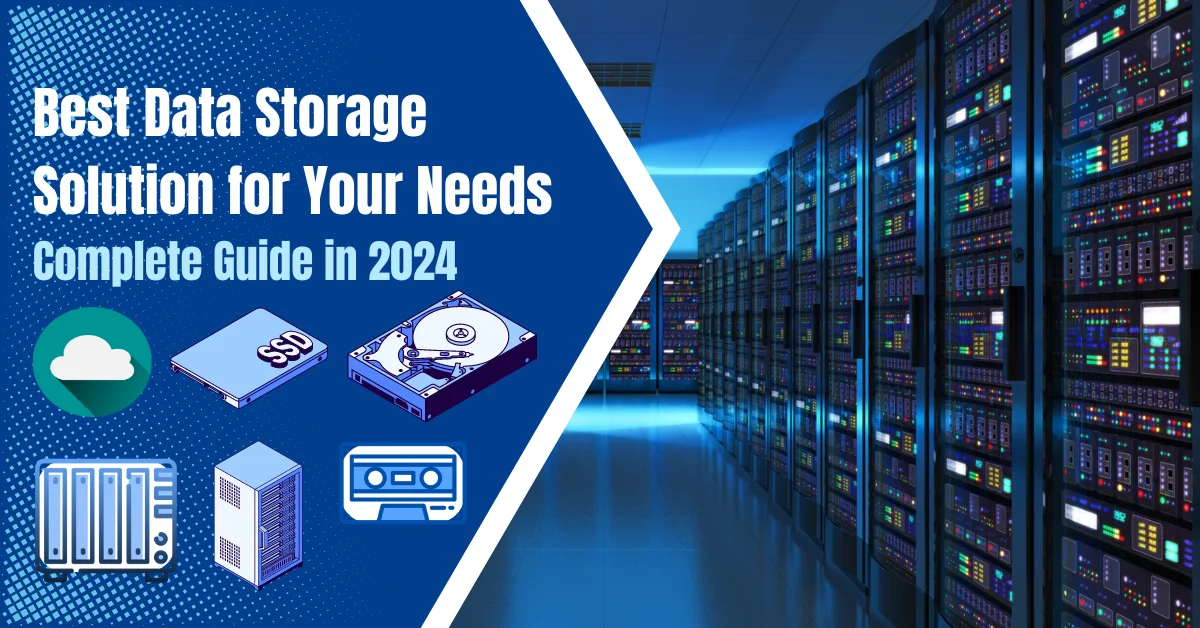Introduction – How to choose the best data storage solution?
Are you looking for the best data storage solution for your needs? Well, you have come into the right place.
In this comprehensive guide, I’ll walk you through the best data storage methods available, their pros and cons, and the key factors to consider when you want to select the best data storage solution for your specific requirements.
Table of Contents
Understand Your Data Storage Needs
It’s important to analyze the kind of data that you want to store. This could include things like documents, images, videos, or even sensitive financial information. Each of these types of data have different storage requirements, like the need for encryption or specific access controls. Before we dive into the different data storage options, it’s essential to understand your unique data storage needs.
These are some factors you want to take into consideration about your data storage needs.

Volume of Data
It’s really important to estimate both the current and future volume of data that you’ll need to store. This way, you can figure out the scalability requirements of your chosen storage solution. By understanding how much data you’ll be dealing with, you can make sure that your storage solution can handle the increasing demands of your business or organization.
Specific Requirements or Regulations
Depending on your industry or location, there may be specific requirements or regulations that you need to comply with when it comes to data storage. This could include data privacy laws or industry-specific standards, like HIPAA or GDPR. It’s super important to make sure that your chosen storage method meets these requirements to avoid any legal or compliance issues. By carefully considering these factors, you can select a storage solution that totally aligns with your specific needs and obligations.
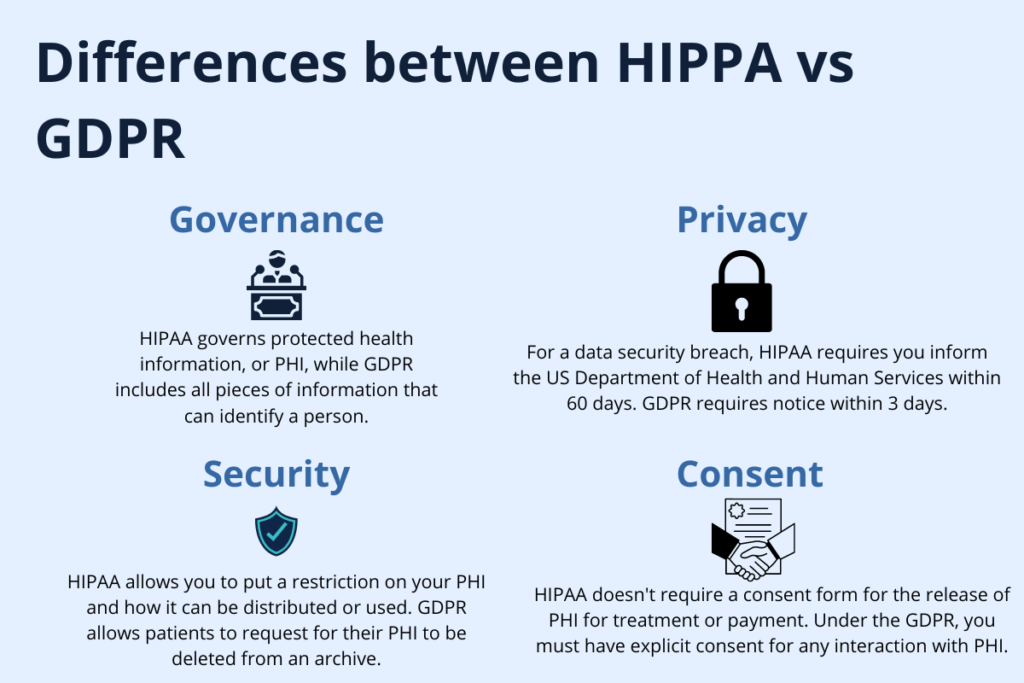
Different Types of Data Storage Solutions
Now that you have a better understanding of your data storage needs, let’s explore the best data storage solutions available.
If you want to learn in detail the different types of data storage, we recommend you to check your guide here.
Cloud Storage
Cloud storage offers a convenient and flexible solution for storing data in the digital age. With cloud storage, your files are securely stored on remote servers maintained by a third-party provider, accessible anytime and anywhere with an internet connection.
In this post, you can learn how to protect your cloud storage safety.
Some of the most popular cloud storage services include Dropbox, Sync.com and pCloud.
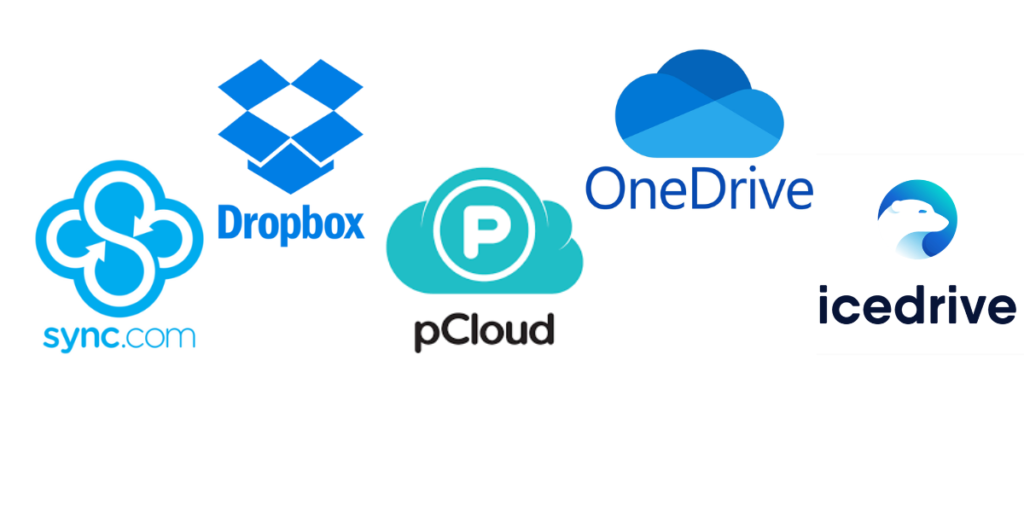
- Pros: Scalable, accessible from anywhere, cost-effective for small to medium-sized data, automatic backups, and minimal maintenance.
- Cons: Potential security and privacy concerns, dependency on internet connectivity, and potential for higher long-term costs for large data volumes.
External Hard Drives
External hard drives are reliable tools for storing data outside your computer. They offer additional space for files such as documents, photos, and videos. Setting up an external hard drive is straightforward: simply connect it to your computer and follow the prompts. Their physical presence provides assurance that your data is safely stored and easily accessible whenever you need it.
- Pros: Portable, cost-effective for personal or small-scale use, and can provide offline storage.
- Cons: Limited scalability, potential for physical damage or loss, and manual backup requirements.
Network-Attached Storage (NAS)
Network-attached storage (NAS) systems are specialized devices designed to provide centralized data storage and sharing capabilities within a network environment. Essentially, NAS serves as a dedicated file storage solution that connects directly to a local area network (LAN) or a home network router. Unlike traditional external hard drives, NAS devices are equipped with their own operating systems and file management functionalities, allowing them to operate independently.
You can even use NAS to store your favorite movies. You can set up your NAS with Plex.
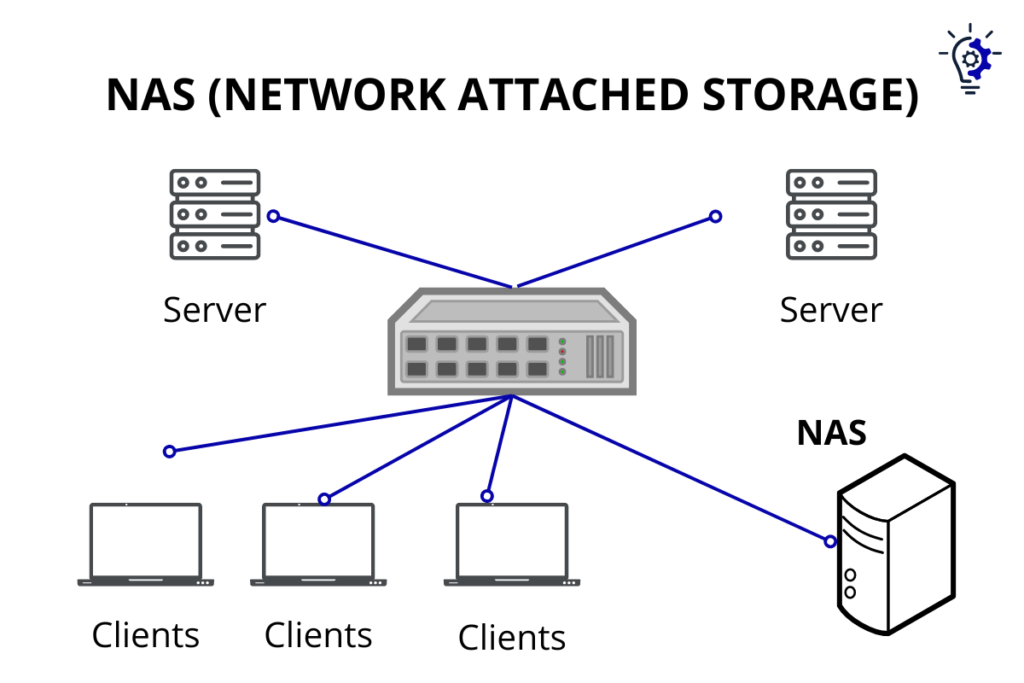
- Pros: Scalable, accessible from multiple devices, can provide redundancy, and offer more control over data storage.
- Cons: Higher upfront cost, more complex to set up and manage, and potential security risks if not properly configured.
Solid-State Drives (SSD):
Solid-state drives (SSDs) are a modern type of storage that use fast memory chips instead of spinning disks. They’re much faster and more reliable than traditional hard drives, making them great for speeding up computers and storing important data. SSDs are durable and don’t have any moving parts, so they’re less likely to break if dropped. They’re popular in laptops, desktops, and servers where speed and reliability are important.
- Pros: Faster data access, more durable, and lower power consumption.
- Cons: Higher cost per gigabyte of storage, limited write cycles, and potential for data loss in the event of power failure.
Tape Storage
Tape storage is a method of data storage that uses magnetic tape cartridges to store digital information. These cartridges contain a thin strip of magnetic tape wound around a spool, similar to the tape in a cassette tape. Data is written to and read from the tape using a tape drive, which moves the tape past a read/write head to access the stored information.
Tape storage systems can store large amounts of data, making them suitable for long-term archival purposes. They are often used by businesses and organizations to back up critical data, comply with regulatory requirements, and preserve historical records. While tape storage is not as fast as some other storage technologies, it offers advantages in terms of cost-effectiveness, scalability, and data longevity.
- Pros: Cost-effective for long-term, large-scale data storage, and offline storage for enhanced security.
- Cons: Slower data access, limited scalability, and the need for specialized equipment and expertise.
Hybrid Storage Solutions
Hybrid storage solutions mix on-site storage with cloud storage.
They let organizations store data where it makes the most sense: important data stays on-site for quick access, while less urgent data goes to the cloud for savings and flexibility. These solutions require the use of on-site systems and cloud services, managed by software programs that moves the data between the two. It’s a smart way for businesses to balance performance and cost-effectiveness in their data storage.
- Pros: Combine the benefits of different storage methods, such as the speed of SSDs and the cost-effectiveness of hard disk drives (HDDs).
- Cons: More complex to set up and manage, and potential compatibility issues between different storage components.
Factors to Consider When Choosing the Best Data Storage Solution
Choosing the best data storage method involves considering several important factors. From security and accessibility to scalability and cost, each aspect plays a role in finding the right solution. By evaluating these factors carefully, you can make informed decisions that meet your needs and goals.
Security
When evaluating the security measures of each storage option, look for features like encryption protocols and data protection mechanisms to safeguard your data against unauthorized access and cyber threats. Assess whether the storage solution complies with industry standards and regulations to ensure the confidentiality and integrity of your sensitive information.
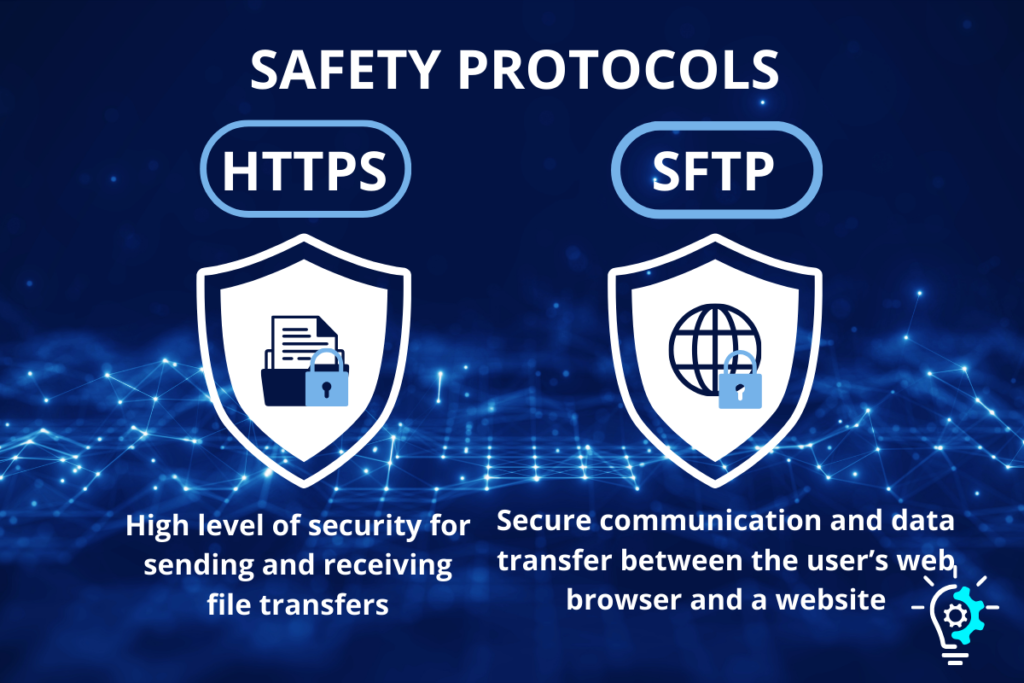
Accessibility
Consider how easily you and your team can access the stored data, especially if you have remote or distributed teams. Look for storage solutions that offer seamless access from multiple locations or devices, enabling efficient collaboration and workflow continuity across your organization.
Scalability
It’s essential to choose a storage solution that can grow with your business without causing significant disruptions or incurring exorbitant costs. Evaluate the scalability options of each storage method, such as the ability to add storage capacity or upgrade to higher-tier plans, to accommodate your expanding data needs over time.
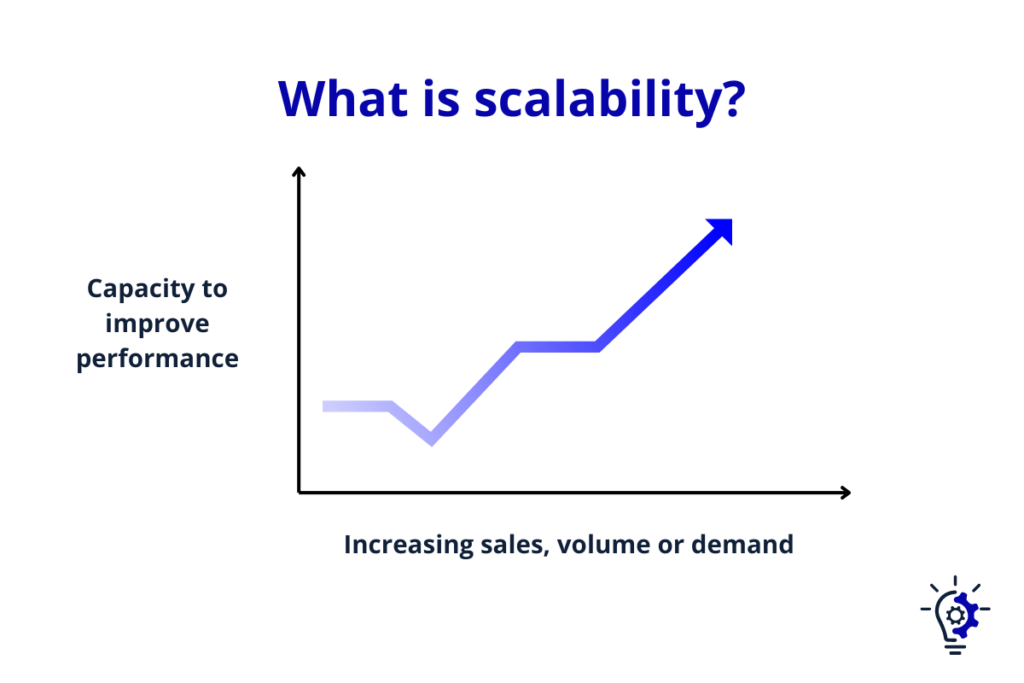
Cost-Effectiveness
Take a good look at the total cost of ownership associated with each storage option, including upfront investments, ongoing maintenance expenses, and potential future upgrades or expansions. Consider factors like storage capacity, data transfer fees, and subscription plans to ensure that the chosen storage method aligns with your budget and provides more value for your money.
Ease of Management
Analyze the complexity involved in setting up, maintaining, and managing the storage solution, as this can have a significant impact on your IT resources and operational efficiency. Look for storage options that offer user-friendly interfaces, automation features, and robust support services to streamline management tasks and minimize administrative overhead.
Best Practices to Store Your Data
Regardless of the data storage method you choose, it’s essential to follow best practices to ensure the security and integrity of your data. Here are some essential guidelines to follow:
Implement Robust Backup and Disaster Recovery Strategies
Establish comprehensive backup procedures to ensure that your data is regularly backed up and stored securely. Additionally, develop a disaster recovery plan to mitigate the impact of unexpected events such as hardware failures, natural disasters, or cyberattacks.
Regularly Review and Update Data Storage Policies
Stay vigilant against evolving security threats by regularly reviewing and updating your data storage and access policies. Ensure that your policies align with industry best practices and compliance standards to mitigate risks and protect sensitive information.
Educate Yourself and Your Team on Data Handling Protocols
Train your team members on proper data handling and storage protocols to minimize the risk of human error and inadvertent data breaches. Emphasize the importance of following security protocols, such as using strong passwords, encrypting sensitive data, and avoiding unauthorized access.

Regular Monitoring and Maintenance
Implement proactive monitoring and maintenance practices to ensure the ongoing performance and reliability of your storage systems. Monitor storage capacity, system health, and security alerts regularly to detect and address any issues promptly.
Ensuring Data Security Measures
Implement robust security measures to protect your data from unauthorized access, breaches, and cyber threats. This includes implementing encryption protocols, access controls, and regular security audits to safeguard sensitive information. By prioritizing data security, you can minimize the risk of data breaches and ensure the confidentiality and integrity of your data assets
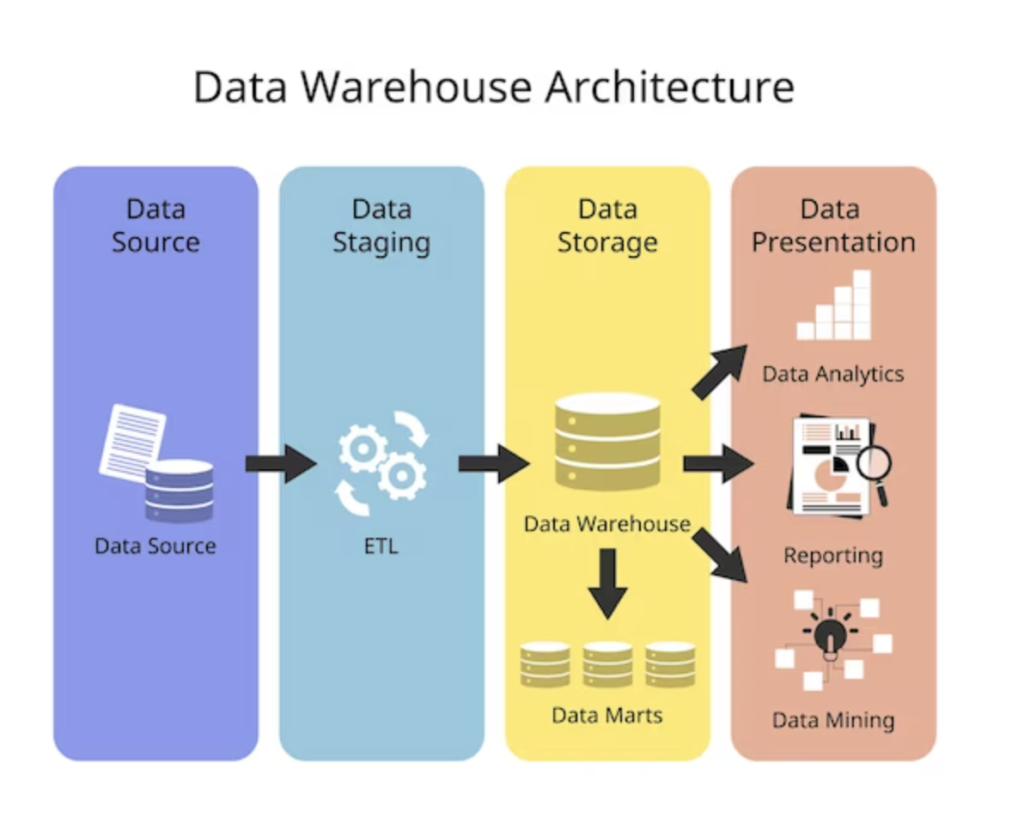
Conclusion – Choosing the Best Data Storage Solution for Your Needs
Selecting the right data storage solution is a critical decision that can have a significant impact on the success and security of your operations. By understanding your data storage needs, evaluating the various options, and considering the key factors, you can make an informed choice that aligns with your requirements and budget.
Remember, there is no one-size-fits-all solution when it comes to data storage. The best approach is to carefully assess your unique needs and explore the pros and cons of each storage method to find the optimal solution for your business or personal requirements.
I hope this guide has provided you with a comprehensive understanding of the different methods and the factors to consider when choosing the best data storage solution one for your needs. If you have any further questions or require additional assistance, please don’t hesitate to reach out to us through our contact page.


